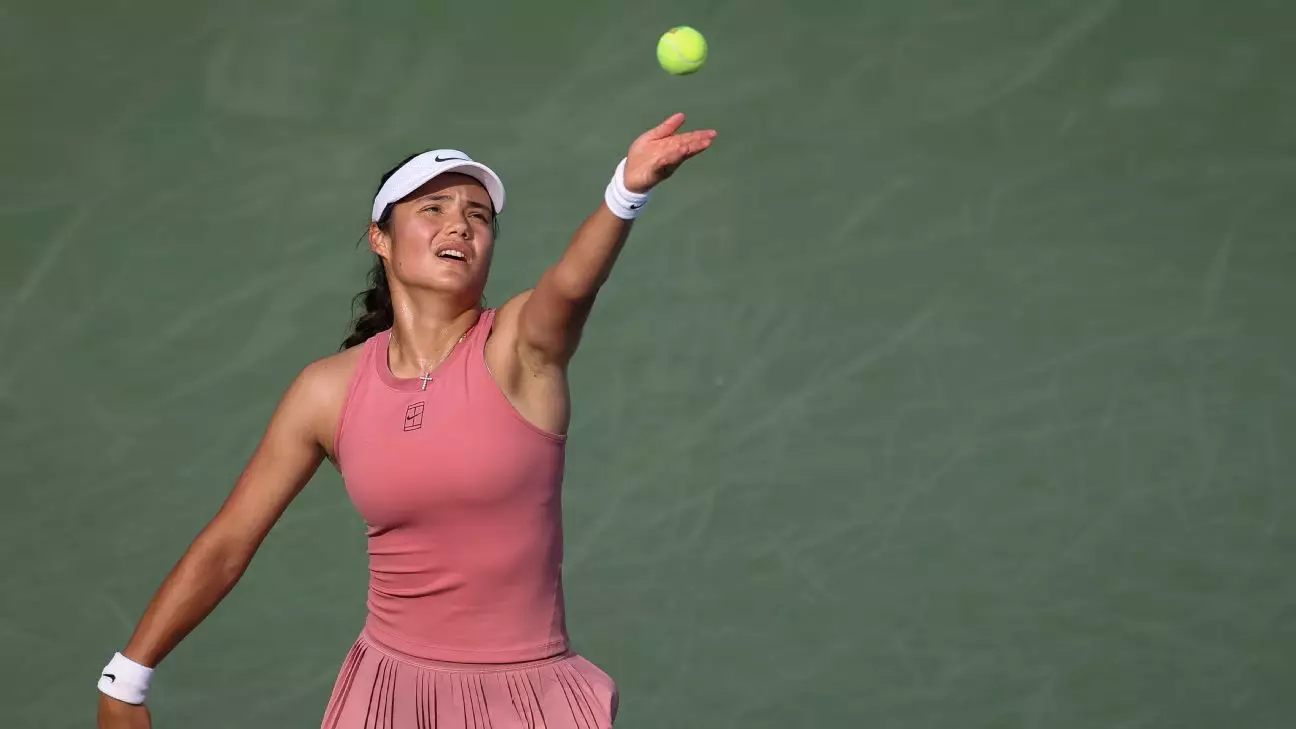Tennis, often seen as a sport of glamorous victories and fleeting fame, bears a deeper narrative of resilience, determination, and relentless pursuit of excellence. Recent matches at the DC Open underscore this truth, showcasing players who, despite setbacks, exemplify the unwavering human spirit. Emma Raducanu’s victory symbolizes not just a win but a testament to perseverance. Conversely, Marta Kostyuk’s prolonged slump reveals the harsh realities many athletes face — setbacks that test their mental fortitude and demand patience and grit. These stories stress that behind every triumphant moment lies a history of struggle, often unseen by the crowd’s adulation.
This juxtaposition between the rising and the falling in tennis highlights an essential truth: resilience isn’t simply an attribute reserved for champions but a fundamental requirement for anyone committed to the sport. Raducanu’s remarkable comeback and her upcoming clash with Naomi Osaka or Yulia Putintseva reflect her ongoing pursuit of excellence amidst the chaos of competition. Meanwhile, Kostyuk’s six consecutive first-round exits serve as a stark reminder of how fragile success can be and how sustaining motivation during a downturn is perhaps the toughest challenge of all.
The Power of Experience and Age in Shaping a Legacy
The narrative of tennis is not only about emerging talents but also about seasoned athletes who redefine perseverance with their longevity. Venus Williams, at the age of 45, defying typical athletic lifespan expectations, secured a historic victory that marks a chapter of inspiring longevity. Her triumph over Peyton Stearns emphasizes that age, often perceived as an Achilles’ heel in sports, can be transformed into an asset when matched with passion, discipline, and resilience. Williams does not merely compete; she redefines what it means to be a professional athlete tirelessly pushing boundaries.
Her layered achievements, including a doubles victory days earlier, reveal an athlete who refuses to surrender to physical decline and instead, leverages her experience. This is a lesson to the younger generation: perseverance and love for the game can forge a legacy that transcends time. Women like Venus Williams embody the true essence of resilience, inspiring not just fellow players but anyone striving to defy limitations.
Injuries and Setbacks: Tests of Mental Toughness
The current tumult in the men’s tournament, with Lorenzo Musetti’s injury-induced withdrawal and Holger Rune’s unexpected pullout, underscores how unpredictability remains an inevitable element of sports. These setbacks aren’t just physical challenges; they are mental tests. Musetti’s injury at the French Open, which has hampered recent performances, illustrates how fragile athletic careers can be and how quick fortunes can change due to unforeseen circumstances.
In a sport that demands relentless physical and mental endurance, such interruptions can become pivotal moments. They prompt players to confront their vulnerabilities, fostering resilience that may ultimately define their careers. The willingness to recover and adapt turns these setbacks into opportunities for growth, reinforcing that true champions are shaped not by victories alone but by how they handle adversity.
The tennis landscape continues to evolve, revealing stories of legacy, resilience, and unwavering dedication. Whether it’s Raducanu’s resilience, Venus Williams’ timeless pursuit, or the inevitable hurdles faced by players like Musetti and Rune, each narrative emphasizes a core truth: success in tennis — and in life — belongs to those who refuse to give up in the face of adversity.

